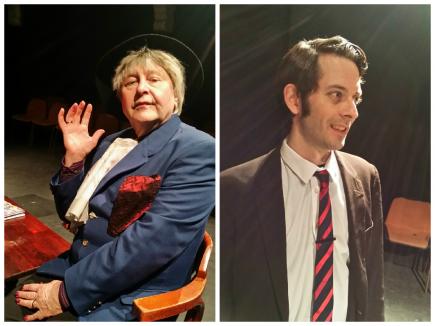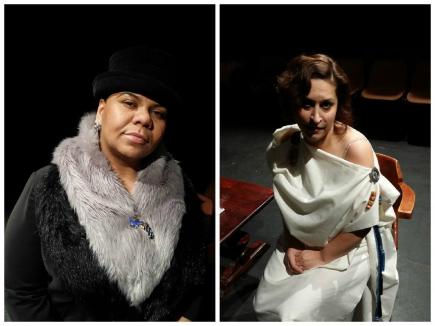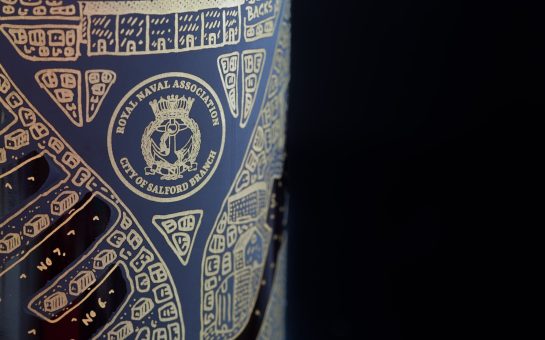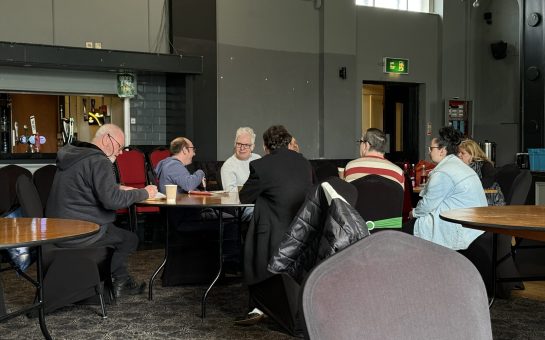What would happen if four of history’s greatest LGBT icons found themselves together in a waiting room, each given the power to change one aspect of their lives?
That’s the question posed in Would You Change, a thought-provoking, ingenious and downright ambitious piece of theatre which has returned to the stage after a successful run at last summer’s Manchester Fringe.
The story revolves around Harvey Milk, legendary 70s political activist; Quentin Crisp, London’s flamboyant raconteur and controversial author; Gladys Bentley, the black lesbian cross-dressing blues singer; and Sappho, the ancient Greek lyric poet whose lines on homosexual love have inspired millions.
All four are no longer alive, but their legacy still lives on in the hearts and minds of the LGBT community.
The characters find themselves together in a rather underwhelming waiting room – more reminiscent of a Salford pub than the pearly gates of heaven – where they each receive a case file of their life in summary.
The small audience became part of the room’s furniture as we took our seats either side of the four protagonists.
In the hour that followed, their lives are shared, critiqued and discussed with no holds barred as the individuals undergo a catharsis – the process culminating in them being given the option of choosing one aspect of their life to change, should they wish.
Sappho (Kelly Efthymiou), two thousand years out of touch with modern LGBT life, plays a pivotal role in progressing the discussion, and in many ways her character is the real strength behind the concept.
Her repeated, innocent questioning of how things have regressed during the two millenniums since she was alive leads the audience into their own epiphany, leaving us with no choice but to question the absurdity of sexual prejudice.

CRISP AND MILK: Effeminate writer and raconteur Quentin Crisp (Husband) and legendary US politician Harvey Milk (Marsden)
Harvey Milk, played by Andrew Marsden – a spitting image of Jude Law – shared many similarities to Sean Penn’s depiction of the impassioned politician in the 2008 film Milk, managing to effortlessly convey an unfaltering dedication to the LGBT cause.
He breathes a sense of naivety and optimism into the group, which, for the most part, appears largely pessimistic about the future of gay rights.
Andrew Husband, meanwhile, was on form as the flamboyant, unrepentant raconteur Quentin Crisp, putting on a sterling depiction of a character who seems almost too far beyond hope. His decision to make no changes to his life and to leave the room first is exactly the judgement I would expect of Crisp.
Bentley (Rebecca Swarray) comes across as a woman torn apart by decisions forced upon her by society. Her powerful tirade against the three others for their condemnation of her abandonment of true love for ‘right’ love was spot on, and the only taint in an otherwise strong performance was a rather forced and unnecessary outburst into song.
The play neatly alternates from character to character, interrupted occasionally by the scatty metaphysical civil servant, Tint (Christopher Bowles), who unfortunately served more to obstruct the thoughtful conversation than to progress the narrative.

BENTLEY AND SAPPHO: Busty blues icon Gladys Bentley (Swarray) and ancient Greek poet Sappho (Efthymiou)
It was a short show; just enough to keep the dialogue fresh and the debate concise, but the concept is genius. What would these four LGBT legends change, if they had a chance?
If, by divine intervention, Milk had the chance to get elected earlier, and without such a difficult fight, would he have taken it? With little time to dedicate to love, would he have chosen to save his relationship or allow his legacy to remain untouched?
Despite living a life of having to constantly fight against the establishment and social norm, would the effeminate Crisp have chosen to approach it any differently?
Reflecting on her choice to marry a man she didn’t love by bowing to the pressures of homophobia, does Bentley decide to stay with the woman she loved, defying societal expectation?
And knowing, now, that only a fraction of her poetry survived to the current day, would Sappho still have dedicated her life to writing on the topic that she loved?
Big questions, difficult answers. Yet the play delivers in its promise of looking at modern equalities through the eyes of those who lived without it.
Would You Change has finished its short run at the King’s Arms but hopes to return in the near future. Further information can be found on the production’s website here.
All images courtesy of Bewilderbeastly Productions, with thanks



